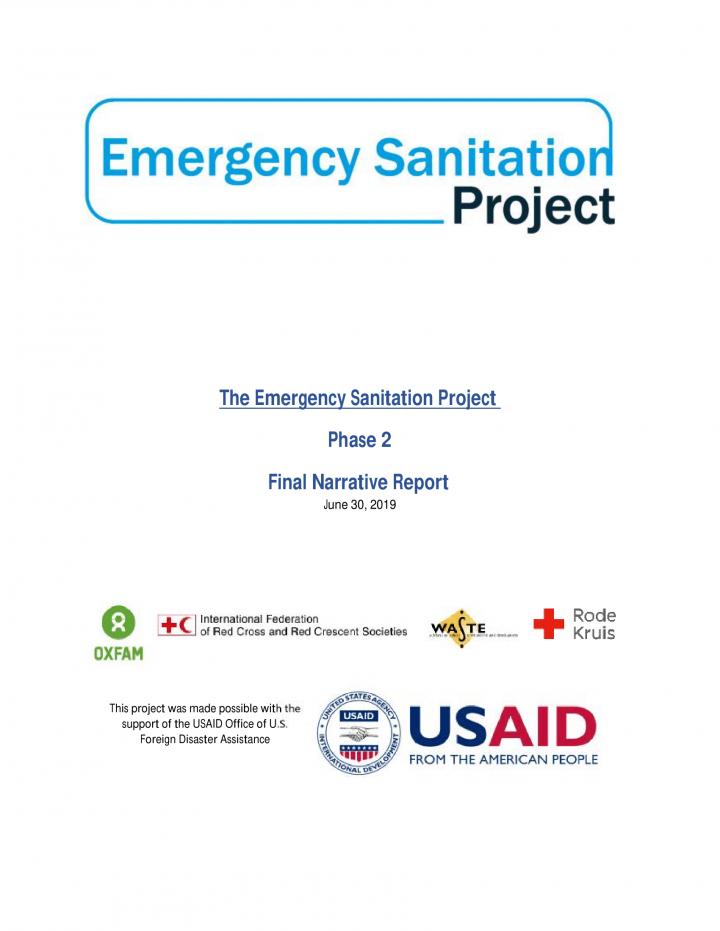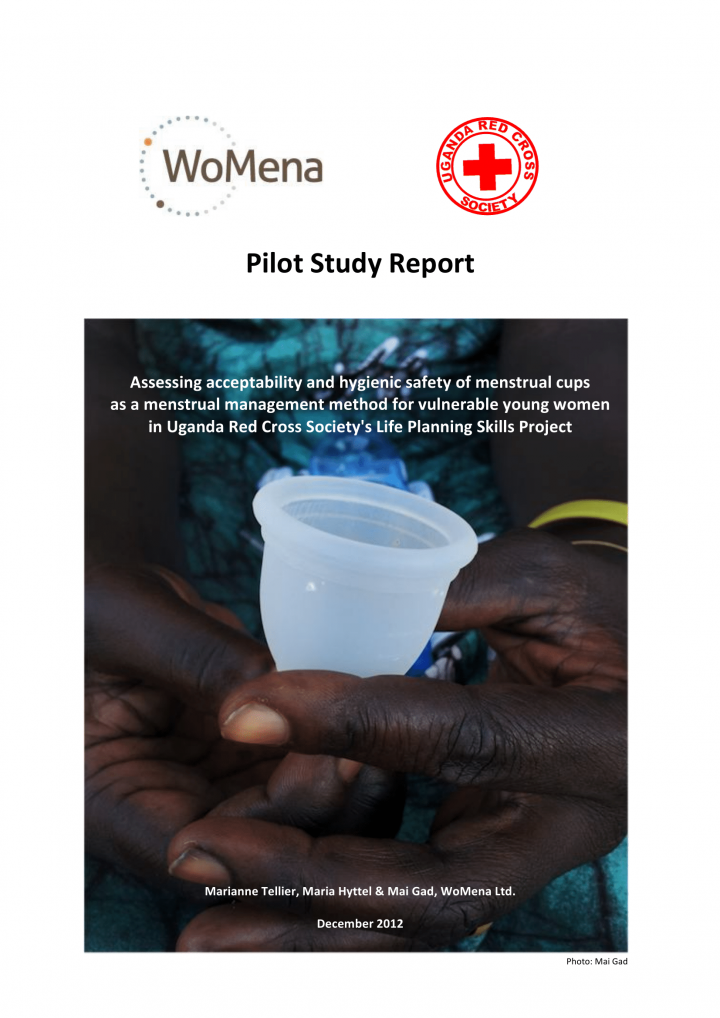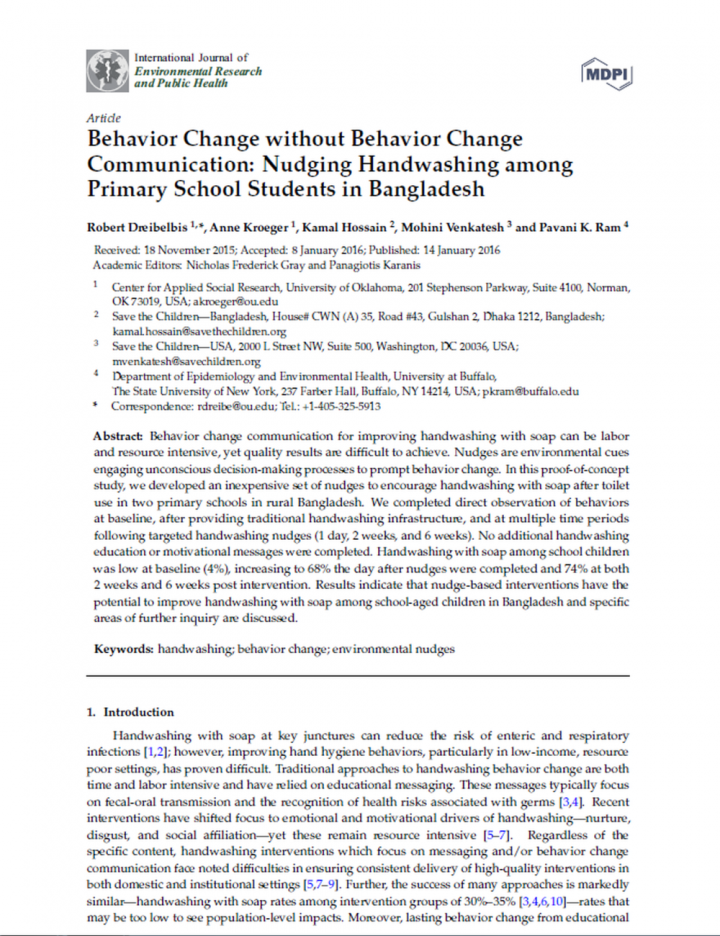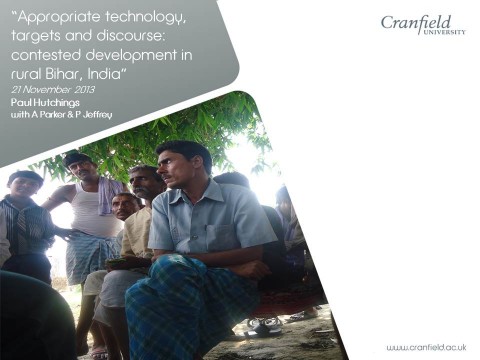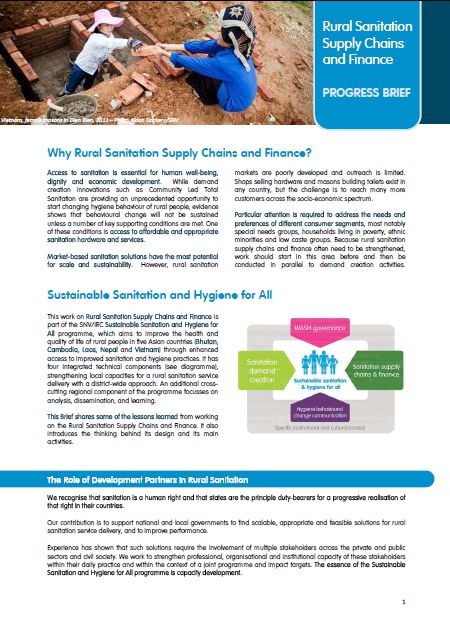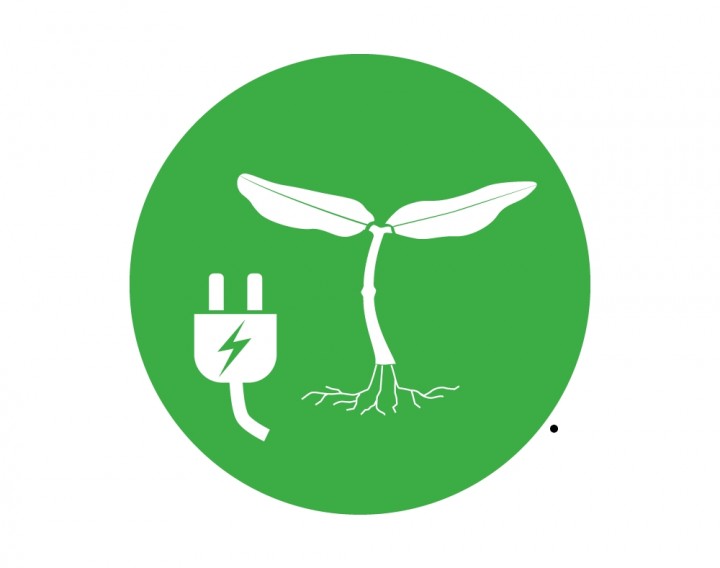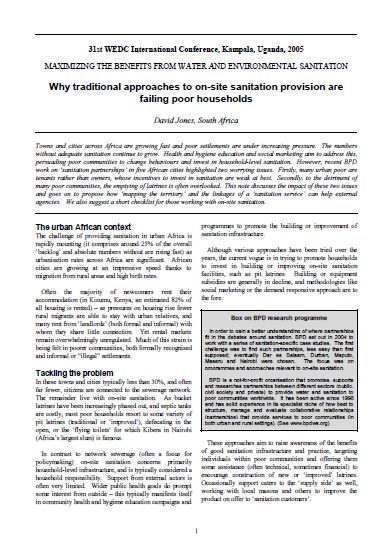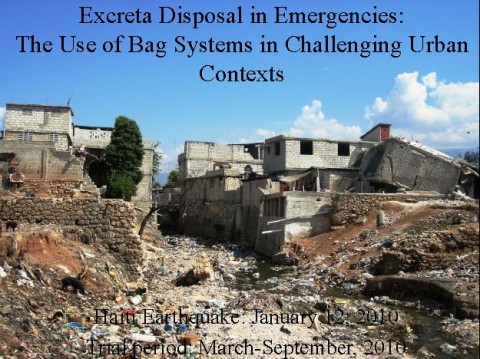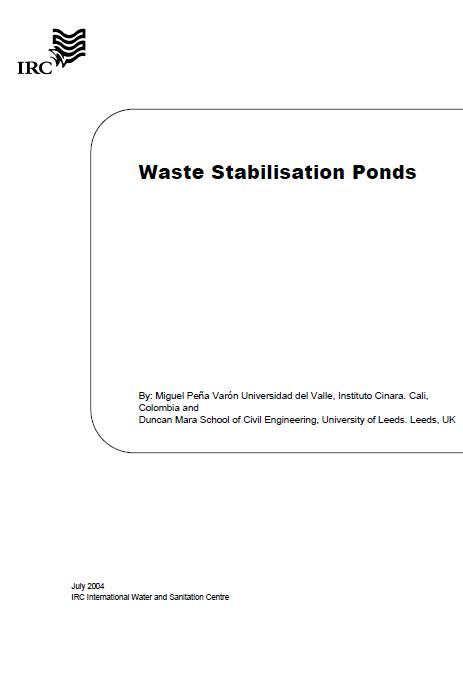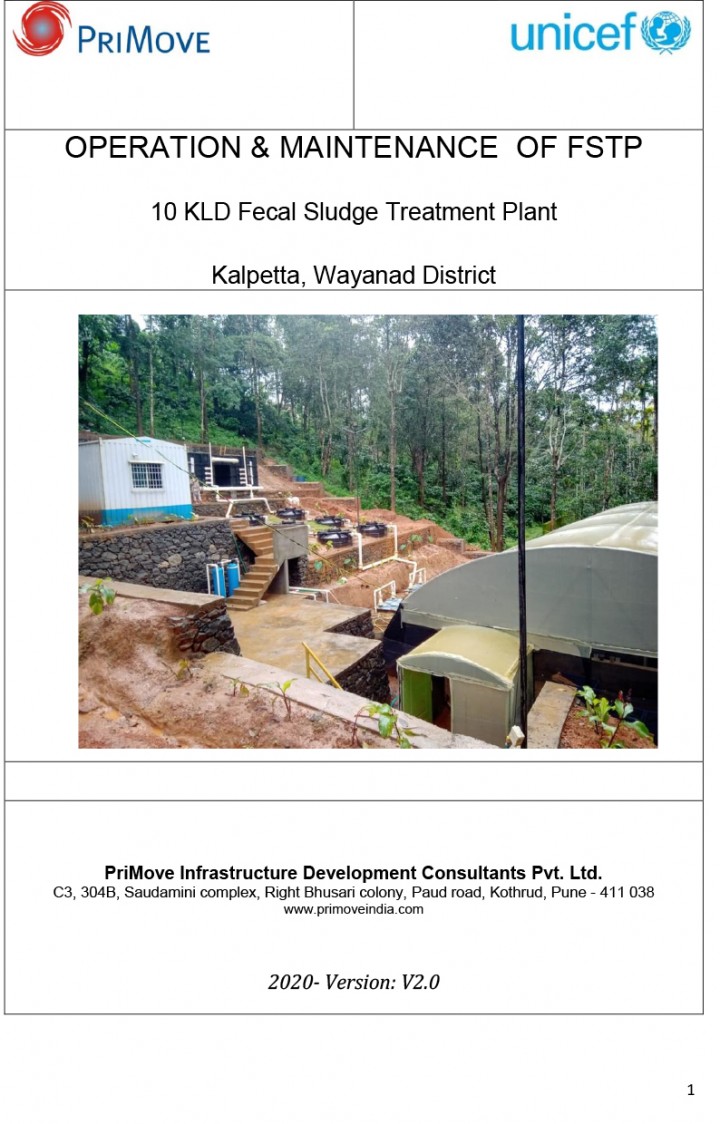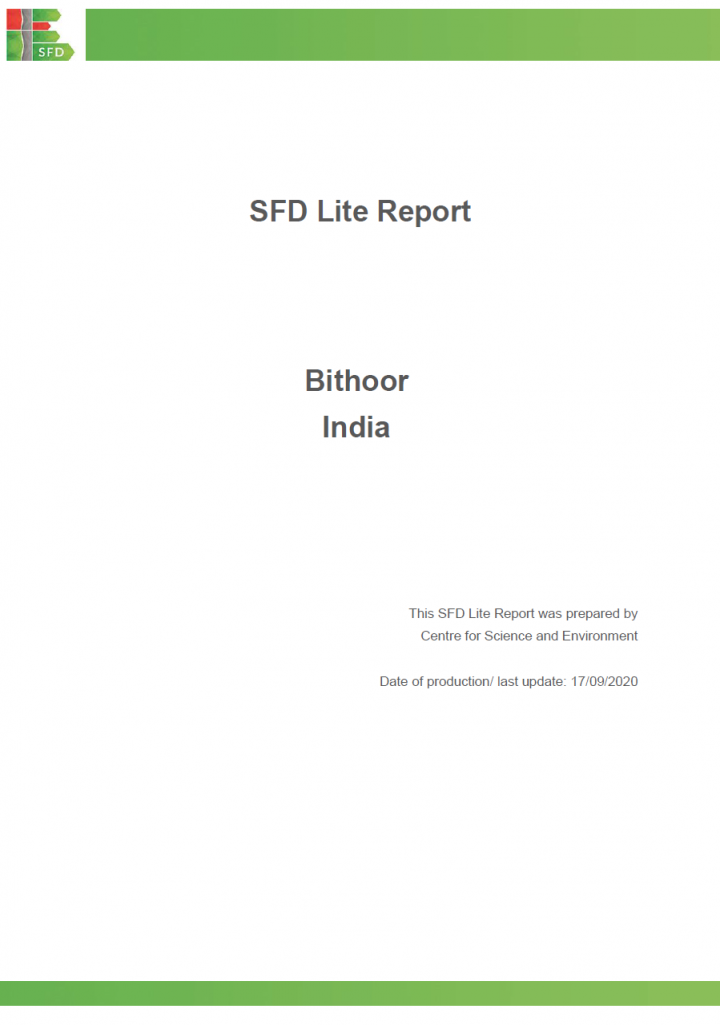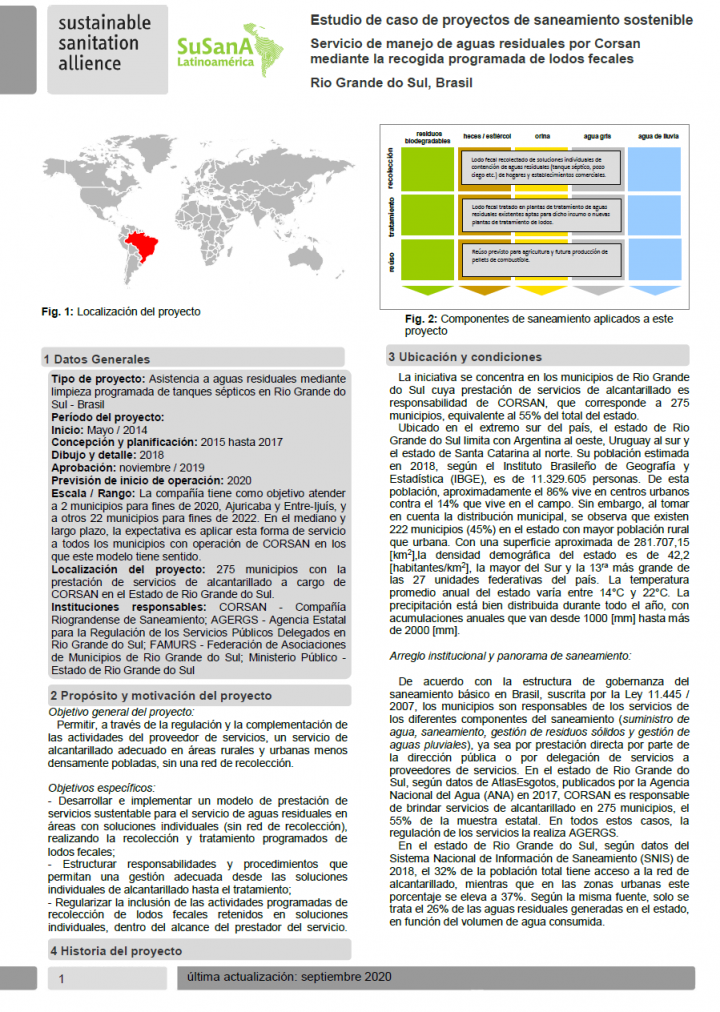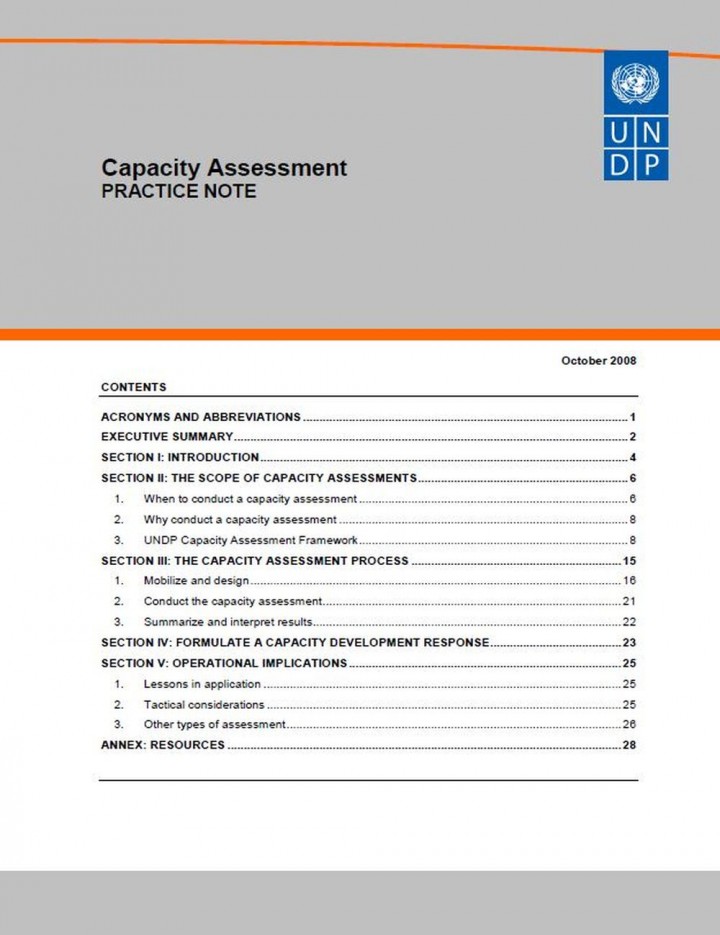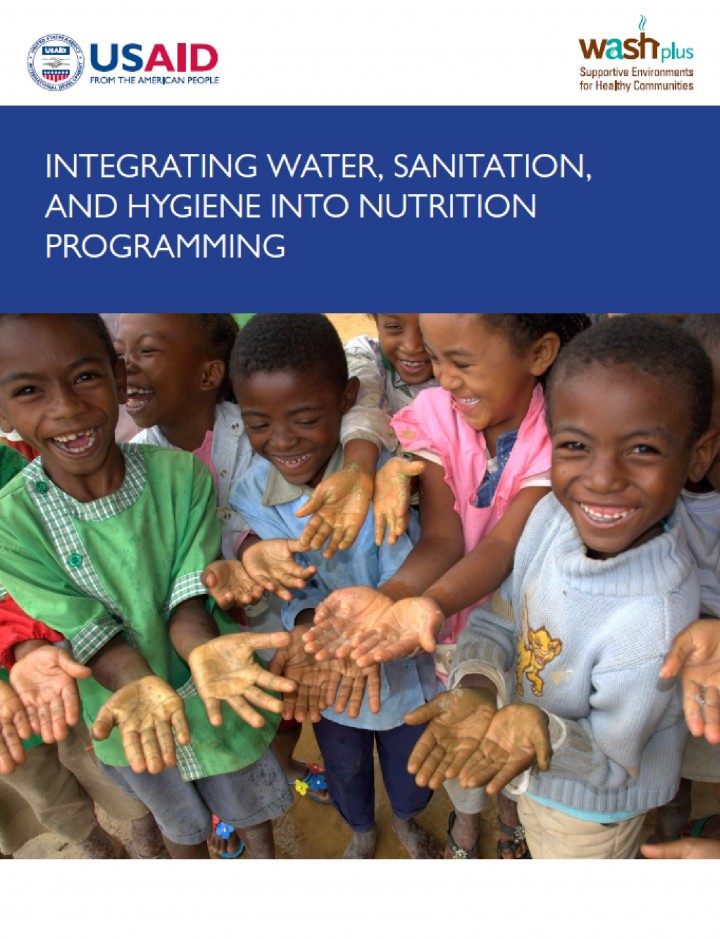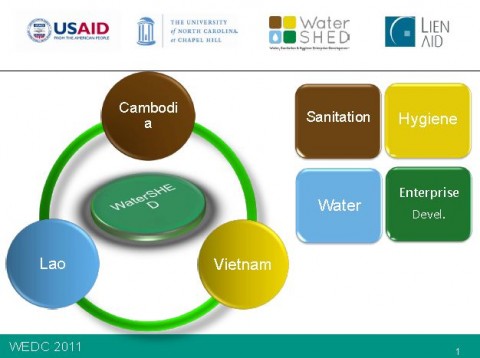Searching for information on Sanitation Workers?
The Sanitation Workers Knowledge + Learning Hub is the best source for all current news, trends, articles and updates on sanitation workers rights around the world.
With increased urbanization and regulatory scrutiny, the ability of humanitarian agencies to use the simple pit latrine to safely manage human waste in emergencies will decline. When a latrine is not suitable, the response options become exponentially more complicated. Different toilets must be constructed. The contents must then be removed and treated. This is as complicated and expensive as it …
Recordings and presentation for the webinar jointly hosted by SuSanA, WHO and NNN on the new ‘How to’ guide for NTD programmes: “WASH and Health working together: a practical guide for NTD programmes."
Presentation held by Sophie Boisson (WHO), Leah Wohlgemuth (NNN) and Yael Velleman (Schistosomiasis Control Initiative)
Study objectives: The objectives of this study were to assess young girls and women’s acceptability, suitability and hygienic safety of using menstrual cups in Uganda, when introducing cups through the Uganda Red Cross Society (URCS) Life Planning Skills (LPS) project framework. In the long-‐term, this is intended to support the formulation and implementation of policies and programs aimed …
In 2016 the Toilet Board Coalition ran a Feasibility Study to explore the potential role of mobile and digital applications to drive efficiencies and consumer demand in sanitation business models operating in low income markets. The following questions were at the centre of our inquiry:
• How are sanitation businesses operating in low-income markets using mobile and digital applications in …
This study provides an assessment of the global costs of meeting the WASH-related targets of SDG 6. The targets assessed include achieving universal and equitable access to safe and affordable drinking water for all (target 6.1), achieving access to adequate and equitable sanitation and hygiene for all, and ending open defecation (target 6.2). The estimates include 140 countries, or 85% of the …
Behavior change communication for improving handwashing with soap can be labor and resource intensive, yet quality results are difficult to achieve. Nudges are environmental cues engaging unconscious decision-making processes to prompt behavior change. In this proof-of-concept study, we developed an inexpensive set of nudges to encourage handwashing with soap after toilet use in two primary …
The international debate on the question of whether shared and/or public sanitation facilities should be considered improved is still open. The concern is that a shared sanitation facility cannot be maintained in hygienic conditions when used by too many people. The analysis of 1’500 randomly selected toilets in the urban slums of Kampala showed that only 22 percent of households have access to …
In this library entry we have grouped together up to five documents that we think are important "first reading" materials for anyone wishing to obtain a quick overview of this topic. For more details, please see the external links to the discussion forum below.
The documents listed in this library entry in reverse chronological order already exist as individual library entries but have been …
Kalpetta is a town and a municipality in the Wayanad district, state of Kerala, India. The FSTP uses vermifiltration where worm-based sludge treatment is combined with water filtration to digest organic matter present in septage. The worms need only air, water, and sludge (food) to operate efficiently as a part of the vermifiltration system.
The Tiger Biofilter technique is based on …
Bithoor or Bithur is a town in Kanpur Nagar District, 23.4 kilometres by road north of the centre of Kanpur city, in Uttar Pradesh, India. Bithoor is situated on the right bank of the Ganga, and is a centre of Hindu pilgrimage. According to Hindu mythology, Bithoor is the birthplace of Lord Ram's sons Luv and Kush. Bithoor is also the centre for Revolt of 1857 as Nana Sahib, a popular freedom …
This report seeks to understand:
(1) the current state of girls’ experience with menarche and MHM in Kenya,
(2) the donor, government, and NGO responses to girls’ needs, and
(3) opportunities for research, advocacy,
and programming to better address these needs.
This complements a Global Landscape Analysis and is one of three Country Landscape Analyses focused on India, Kenya, and …
The achievement of the Millennium Development Goals and other international and national development targets hinges on capacities of individuals, organizations and societies to transform, in order to reach their development objectives. While financial resources, including official development assistance, are vital, they are not enough to promote sustainable human development. Without supportive …
Unsafe water was considered the primary cause of diarrhea in children transitioning from an exclusive breastfeeding diet, but recent evidence also points to unsafe food. The brochure highlights some WASH interventions that can prevent diarrhea and undernutrition even in hygiene-challenged environments.

